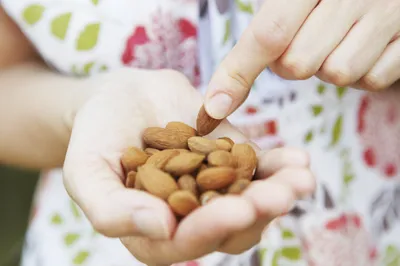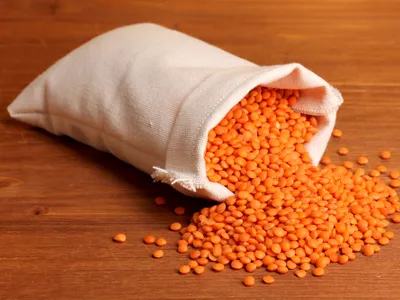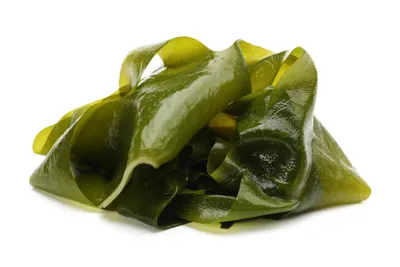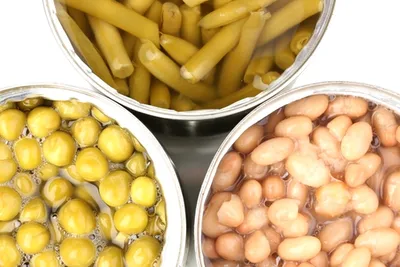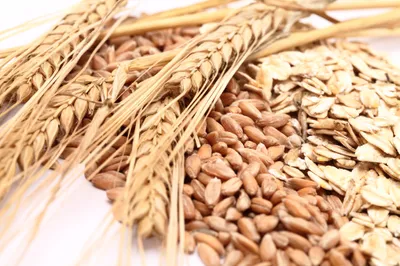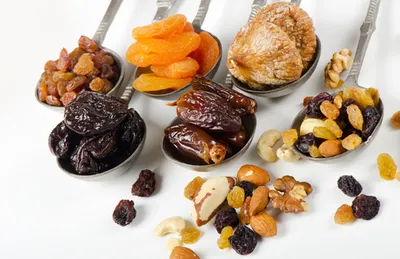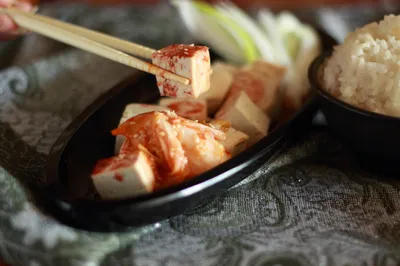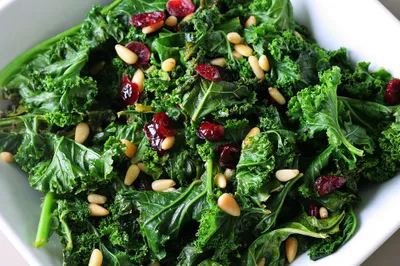Regardless of your own personal reasons for becoming a vegan or vegetarian (i.e., animal rights to lowering the risk of cardiovascular disease) going meatless means losing out on some essential nutrients if you’re not informed. Nutritional deficiencies in iron vitamin B12, calcium, vitamin D, zinc, and protein can lead to a ton of health woes—from anemia to osteoporosis. But not if you incorporate these vegan and vegetarian friendly foods into your diet…
1. Nuts
There are numerous health reasons why vegetarians and vegans should go nuts for nuts! It doesn’t matter if it’s raw almonds, cashews, pistachios, walnuts, peanuts, Brazil nuts, pecans, or macadamia nuts—all are excellent sources of protein, zinc, calcium (especially in almonds), heart healthy omega-3 fatty acids, and vitamin E.
Sure, I know that nuts get a bad rap because they’re high in calories. However, a research study from Purdue University ensures us that individuals who nosh on nuts typically weigh less than those who say no to nuts. Studies do indicate that nuts take longer to digest, which means we eat less and burn off more calories in the long run.
2. Lentils
If you’re not familiar with this super legume—I’d like to introduce you officially to the lentil. Similarly to beans, lentils are packed with soluble fiber and protein. However, lentils, unlike beans, contain a double dose of iron.
Another plus for lentils is that they tend to be less gassy compared to beans, and they contain more folate (which reduces birth defects in pregnant women) and B vitamin per bite. Lentils are also versatile—in protein- and fiber-packed stews, soups, spreads, puréed dips, and salads.
3. Seaweed
You might call it nori, spirulina, kelp, or dulse, but these iron-rich seaweeds are anything but intrusive to the vegan or vegetarian diet. Aside from iron (yes, just like Popeye’s spinach), this deep green veggie is a rich source of vitamins E, A, and C, as well as minerals like chromium, calcium, magnesium, and iodine.
You might wonder how to incorporate seaweed into your diet, but it’s not difficult. Use it as a garnish for soups, salads, sandwiches, and noodle bowls, sauté it in a stir-fry, or use it as a sushi or fresh roll wrapper.
4. Beans
Beans, beans are good for the heart—particularly if you’re a vegan or vegetarian. The iron, protein, and soluble fiber packed into beans decreases bad (or LDL) cholesterol, which can build up and block walls of blood vessels, causing fatal blockages and atherosclerosis.
Plus, beans also deliver an impressive punch of potassium, calcium, vitamins B, and zinc. If you get embarrassingly gassy from simply rinse them using a strainer prior to eating in soups, stews, chili, salads, and dips.
5. Whole Grains
First, let’s be clear when it comes to whole-grains, which are foods fashioned from all naturally-occurring nutrients of the original grain—the bran, germ, and endosperm. For vegans and vegetarians the calcium, fiber and iron in whole grains are great, but it’s the hard-to-get vitamin B12 that you’re really after (and that often lacks in diets that shun animal dairy and eggs).
So look for whole grain sources—such as brown and wild rice, whole grain pastas, whole grain cereals, breads, and oats—fortified with B vitamins. And make a point to reach for foods that feature wild rice, bulgur, farro, spelt, bran, kamut, and whole rye to ward off chronic digestive conditions as well as colon cancer.
6. Dried Fruit
Dried fruits get slack as one of the prime sources of hidden sugar. However, on the flip side, dried cranberries, cherries, raisins, apricots, prunes, figs, mangos, dates, apples, and pineapple are also a prime source of iron, which many vegans and vegetarians greatly lack.
It’s all about finding sources of organic dried fruits with no added sugars to glean the full nutritional benefits. Eat them in moderation with mixed, raw, unsalted nuts and you’ll have a fibrous, iron- and protein-packed snack or salad topper!
7. Tofu
Tofu enters the thought process as soon as vegan or vegetarians enter the room. However, this popular, meat alternative is rich in many things non-meat eaters require—including iron, zinc, calcium, omega-3s, and protein.
Tofu can be used as an animal-friendly meat substitute in any stew, sauce, or meat-based dish, or grilled meal that normally would feature poultry, fish, or red meat. Luckily, tofu provides a similar texture to meat (available in silken, medium, and firm).
8. Leafy Greens
I’m always touting the benefits of a diet rich in leafy greens—like kale, spinach, collards, and Swiss chard. However, for vegans and vegetarians who may easily become iron-deficient, leafy greens high in iron are vital.
For instance, 6-grams of spinach supplies one-third of the daily-recommended iron, and plenty of vitamin A, calcium, folic acid, and disease-fighting antioxidants too boot! Just be sure to eat your iron-rich leafy greens with a high source of vitamin C (i.e., tomatoes, citrus fruits, or bell peppers) to aid iron absorption.

